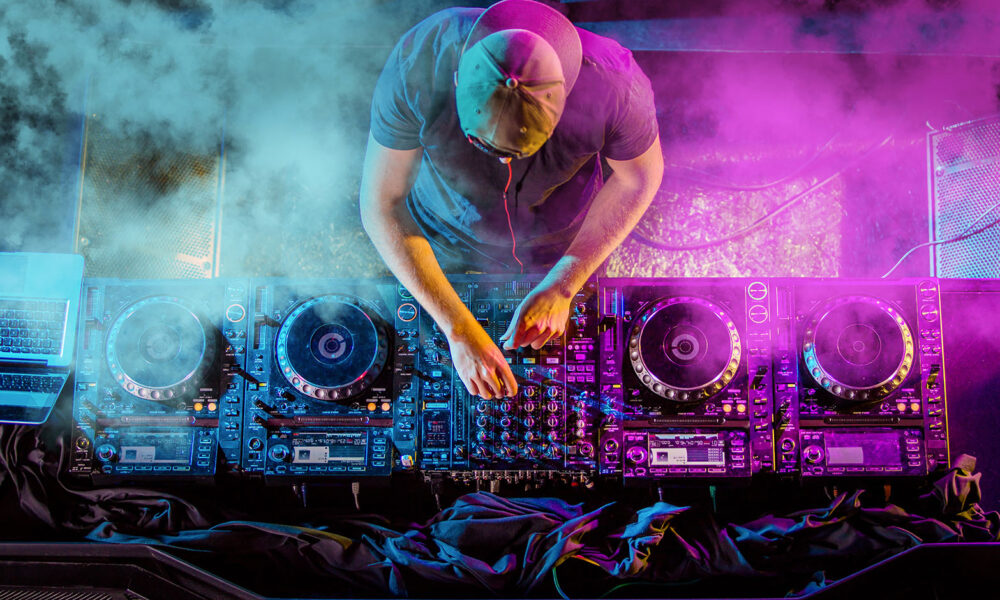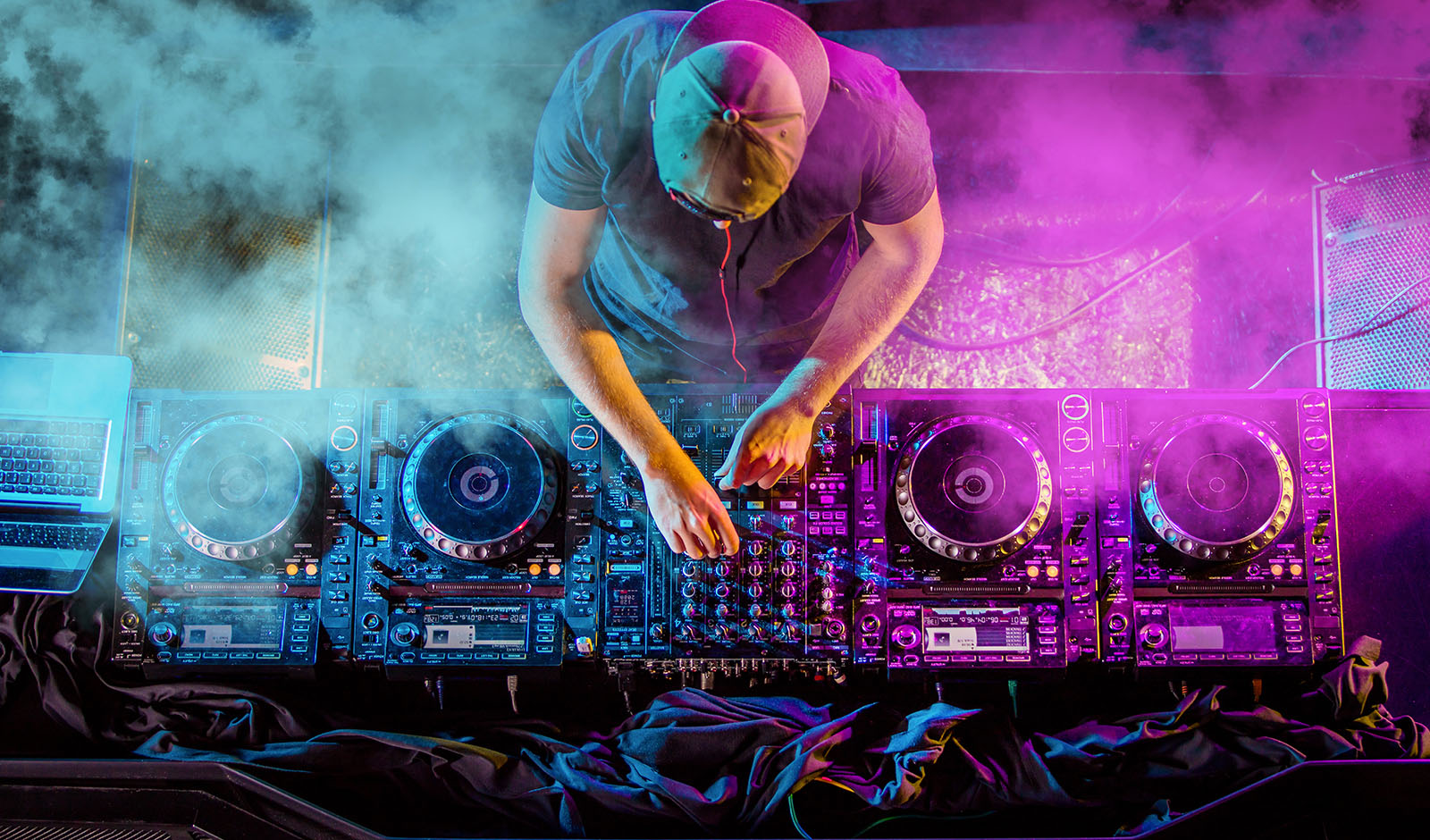

Have you ever left a nightclub with your ears ringing, a high-pitched whine echoing long after the music has stopped? If so, you’ve experienced a common phenomenon known as tinnitus. This condition, while usually temporary, can be quite distressing and, in some cases, may indicate a more serious issue.
By understanding what happens to your ears during and after exposure to loud music, you can better protect your hearing health and continue to enjoy your favourite beats responsibly. This article aims to shed light on post-clubbing tinnitus, exploring the risks, prevention strategies, and treatment options for this surprisingly common issue.
Understanding the Link between Clubbing and Tinnitus
Tinnitus is a condition characterised by the perception of noise in the ears when no external sound is present, often described as a ringing, hissing, or buzzing sensation. It’s a common problem, affecting about 15-20% of people, according to the Mayo Clinic. While there can be various triggers for tinnitus, one of the most common is exposure to loud noises, making nightclubs a prime setting for its onset, also referred to as ‘clubber’s ear’.
Clubs often have music volumes well above 100 decibels (dB), while our ears are designed to handle only up to 85 dB for extended periods without risking damage. This discrepancy can lead to what’s known as Noise-Induced Hearing Loss (NIHL), a major cause of tinnitus.
In fact, it is estimated that unsafe listening practices could put approximately 1.1 billion teenagers and young adults at risk of hearing loss, in accordance with the World Health Organisation (WHO). In middle and high-income countries, around 40% of this population is exposed to hazardous sound levels in clubs. These statistics are a stark reminder of the potential harm we can unknowingly inflict on our ears in the pursuit of a good time.
Risks of Post-Clubbing Tinnitus
Temporary tinnitus after a night of clubbing might seem harmless – a mere nuisance that fades by the next day. However, repeated exposure to loud music can potentially lead to chronic tinnitus, a more permanent and disruptive condition. The effects of chronic tinnitus extend beyond just auditory disturbances. It might have a significant impact on a person’s quality of life.
Here are some associated risks:
Concentration Issues
The persistent noise of tinnitus can make it difficult for individuals to focus on tasks, leading to decreased productivity, as well as procrastination and frustration.
Sleep Disturbances
Many people with tinnitus find it challenging to fall asleep or stay asleep. The quiet environment can make tinnitus seem louder, disturbing the sleep cycle and leading to fatigue.
Mental Health Issues
Chronic tinnitus can lead to stress, anxiety, irritability, and depression. The constant noise can be distressing, and the disruption to sleep and daily activities can take a toll on mental health.
Auditory Issues
Besides tinnitus, repeated exposure to loud noise can lead to other auditory problems, such as hyperacusis (increased sensitivity to normal environmental sounds), difficulties with sound localisation, and even speech recognition issues in noisy environments.
Permanent Hearing Damage
One of the most serious risks of repeated exposure to loud noises is permanent hearing damage. Over time, the loud sounds can damage the delicate hair cells in the cochlea, an organ in the inner ear. These cells are vital for transmitting sound to the brain, and once damaged, they cannot regenerate, leading to permanent hearing loss.
Preventing Post-Clubbing Tinnitus
While it might seem tricky to balance a vibrant nightlife with ear health, there are several strategies that may help lower the risk of post-clubbing tinnitus:
Wear Earplugs
Earplugs can significantly lower the volume of noise reaching your eardrums without distorting the quality of music. There are even high-fidelity earplugs specifically designed for music events that reduce sound levels evenly, preserving the music’s clarity while protecting your ears.
Take Breaks
Every once in a while, step away from the loud music and give your ears a chance to rest. This can help reduce the continuous impact of loud noise on your hearing.
Mind Your Distance
Try to maintain a safe distance from the speakers. The intensity of sound decreases as you move farther from the source, so keeping a reasonable distance can make a big difference.
Keep Hydrated
Dehydration can exacerbate tinnitus symptoms. Alcohol and caffeine, both common in club environments, can dehydrate your body, so make sure to balance your intake with plenty of water.
What To Do If You Experience Tinnitus After Clubbing
Despite taking preventive measures, you might still find yourself experiencing tinnitus after a night out. Here’s what you can do:
Rest and Hydrate
Once you’ve left the noisy environment, allow your ears to rest in a quiet place. Remember to continue drinking enough hydrating fluids, as it can help alleviate tinnitus symptoms.

Avoid Further Noise Exposure
Try to avoid exposure to further loud noises for the next few days. This gives your ears a chance to recover.
Over-the-Counter Treatments
Over-the-counter treatments like ginkgo biloba or zinc supplements have been suggested to alleviate tinnitus symptoms. However, their effectiveness varies from person to person, and they should be used under professional guidance.
Cognitive Behavioral Therapy (CBT)
Even in the early stages of tinnitus, considering cognitive behavioural therapy can be beneficial. CBT helps you manage your reaction to tinnitus, teaching you how to tune out the noise and reduce the impact it has on your life. This can be especially useful if you’re feeling anxious or stressed about your tinnitus.
Incorporating technology into your tinnitus management strategy can make CBT more accessible – one such tool is Oto. This digital program offers a range of tinnitus management approaches, including CBT-based exercises, right at your fingertips. Using Oto can help you gain a better understanding of your tinnitus, learn effective coping strategies, and, ultimately, improve your quality of life.
Consult a Professional
If your tinnitus persists for more than a week, or if it’s causing significant distress, consult a healthcare professional. They can provide a thorough evaluation and suggest personalised treatment options.
Conclusion
A night out clubbing can be a thrilling experience, but it’s important to remember to protect your hearing. With the right preventive measures, it’s entirely possible to enjoy the nightlife while also keeping post-clubbing tinnitus at bay. If you do experience tinnitus symptoms, remember that help is available and seeking professional guidance can lead to effective management strategies.























